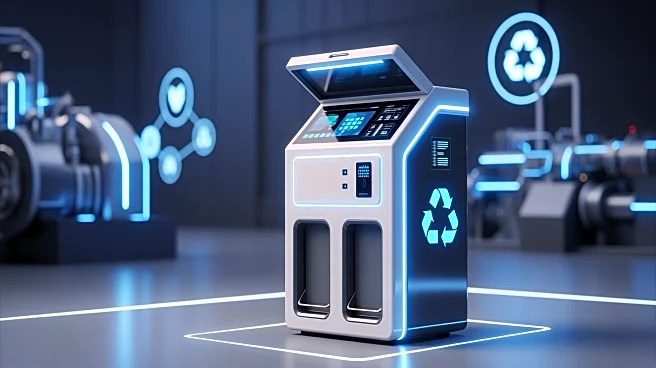What's Happening?
Manufacturers are increasingly integrating smarter waste reporting systems to enhance sustainability and compliance. As regulations like Extended Producer Responsibility (EPR) demand greater transparency, manufacturers face the challenge of managing scattered
data across multiple systems, which can lead to inefficiencies and non-compliance risks. To address this, companies are consolidating waste data through single management partners, enabling a unified view that provides clarity and actionable insights. Additionally, innovative technologies such as AI-enabled vision systems are being employed to detect contamination in waste, improving recycling quality and reducing costs. This shift towards treating waste as a measurable performance metric, akin to water or energy consumption, is helping manufacturers pinpoint inefficiencies and optimize operations.
Why It's Important?
The adoption of smarter waste reporting systems is crucial for manufacturers as it transforms waste management from a compliance burden into a strategic advantage. By leveraging data-driven insights, companies can improve operational efficiency, reduce environmental impact, and enhance their sustainability credentials. This approach not only helps in meeting regulatory requirements but also positions manufacturers to gain competitive advantage in a market increasingly focused on sustainability. As technology becomes more accessible, even smaller operators can benefit from these advancements, potentially leading to industry-wide improvements in waste management practices.
What's Next?
Manufacturers are expected to continue integrating advanced data analytics and digital reporting tools into their waste management strategies. As AI-driven monitoring becomes more widespread, companies will likely see improvements in recycling quality and operational efficiency. The focus on real-time data analytics will drive further innovation in waste management, potentially leading to new partnerships and collaborations aimed at achieving sustainability goals. Stakeholders, including regulatory bodies and environmental groups, may push for even stricter compliance standards, encouraging manufacturers to adopt these technologies more broadly.
Beyond the Headlines
The shift towards smarter waste reporting has broader implications for the manufacturing industry. It highlights the growing importance of sustainability as a core business metric and the role of technology in driving environmental progress. This development may also influence consumer perceptions, as companies that demonstrate strong sustainability practices could attract more environmentally conscious customers. Additionally, the integration of AI and data analytics in waste management could spur advancements in other areas of manufacturing, fostering a culture of innovation and efficiency.

















